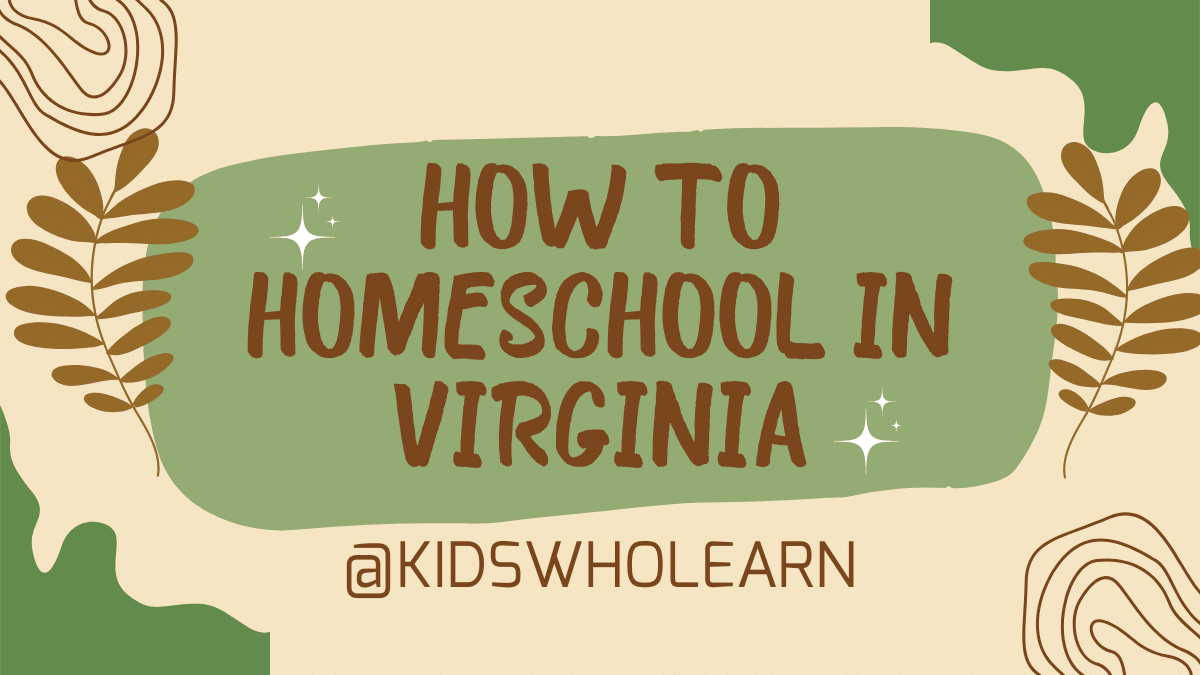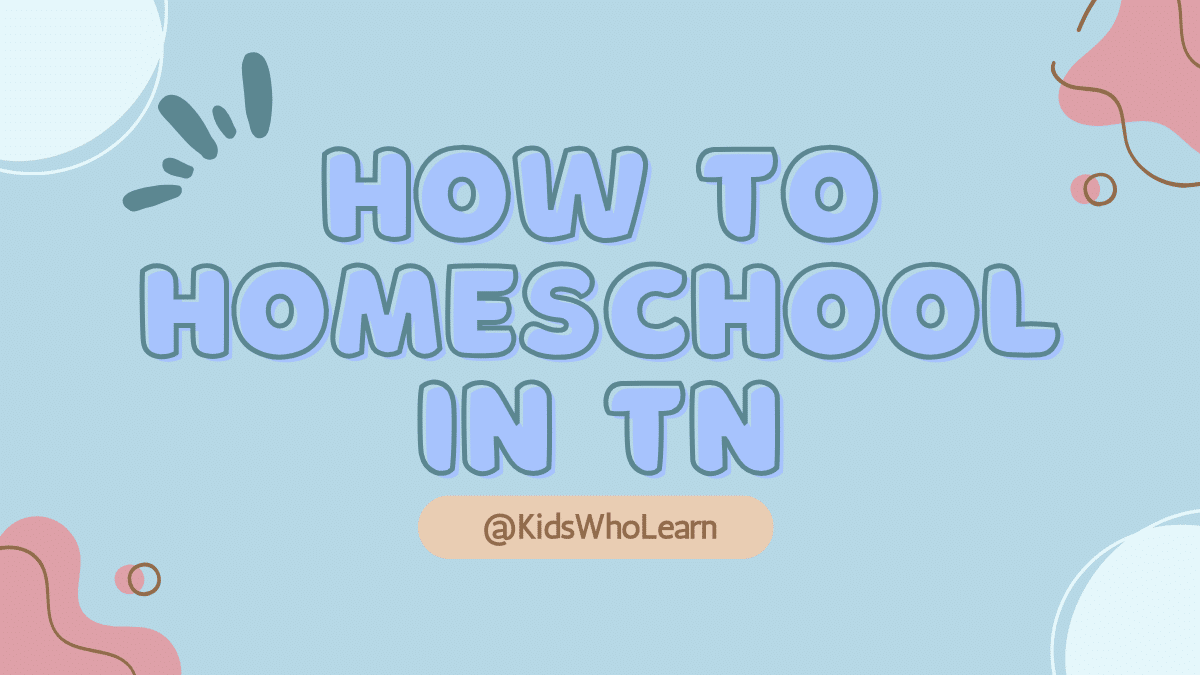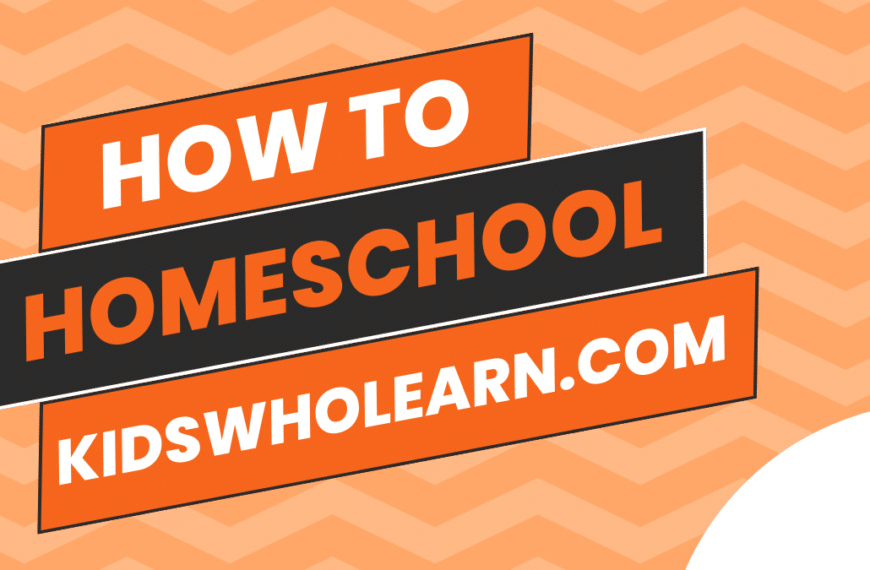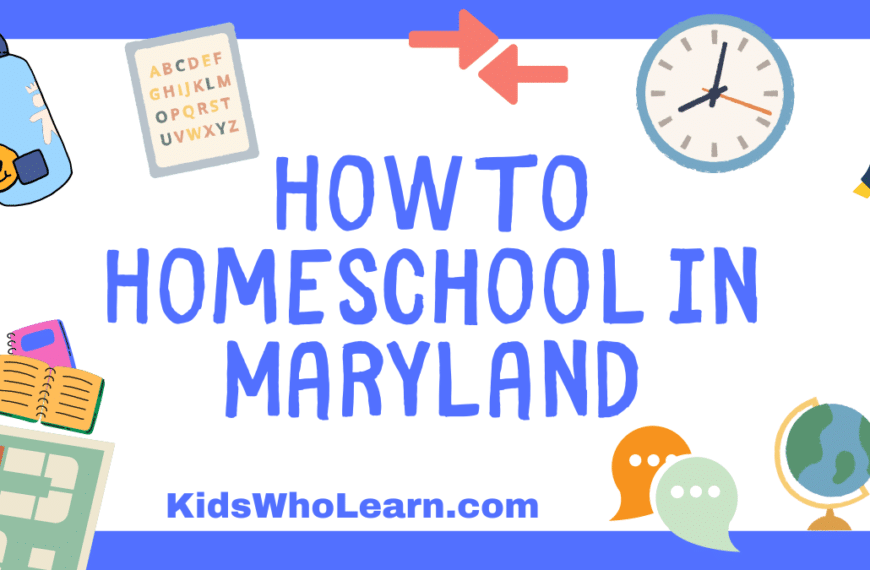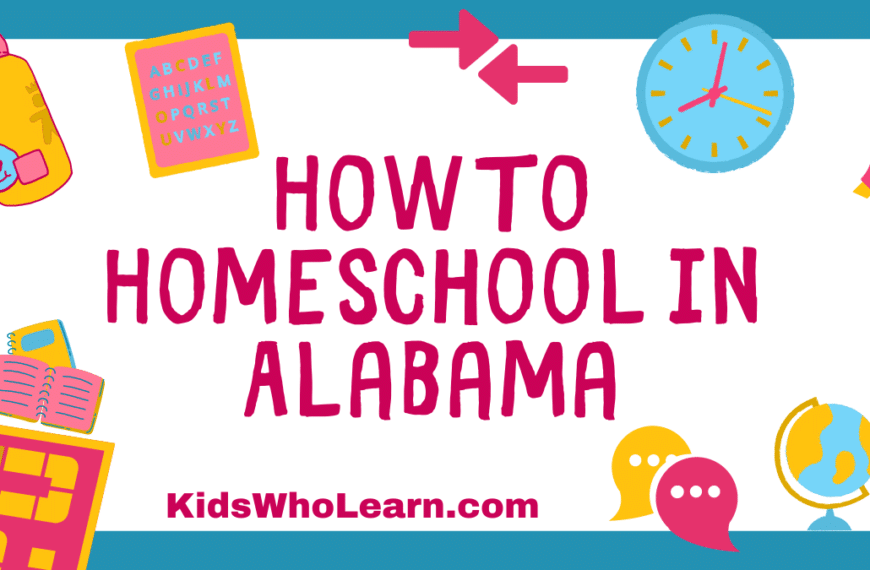Embarking on the homeschooling journey can be an exciting and rewarding experience, especially for parents who want to take a more involved role in their child’s education. In Virginia, homeschooling is a viable option for parents seeking a more personalized and flexible approach to their child’s learning. It offers numerous benefits including a customized curriculum, focused attention, and the ability to foster a love for learning in your child.
Understanding the homeschooling laws in Virginia, preparing a curriculum, and implementing homeschool techniques are essential to successfully homeschooling your child. Equally important are building social skills, navigating standardized testing, and transitioning to higher education. In this article, we will explore the steps to homeschool in Virginia, including legal requirements and how to ensure your child’s success in their educational journey.
Key Takeaways
- Familiarize yourself with homeschooling laws in Virginia and follow them accordingly
- Develop a personalized curriculum that meets your child’s unique learning needs
- Balance academics with social development and preparation for standardized testing and higher education
Understanding Homeschooling Laws in Virginia
Requirements to Homeschool
In Virginia, you need to meet certain requirements to homeschool your child. First, you have to send a Notice of Intent to your local school division superintendent. This notice should include:
- Your child’s name, age, and grade level
- Your address and phone number
- An assurance that you’ll provide the required instruction
You’ll also need to submit one of the following as proof of your ability to teach your child:
- A high school diploma or a higher education degree
- Evidence of completion of a homeschooling parent education course
- Approval from the school division superintendent based on a demonstration of your ability to provide instruction
Subjects to Teach
As per Virginia state law, you must teach the following subjects when homeschooling:
- Language arts: Reading, spelling, grammar, and handwriting
- Mathematics
- Science
- Social studies: History, geography, economics, and civics
- Health and physical education
- Fine arts: Art and music
- Practical arts: Home economics and industrial arts
It’s important to cover these subjects in a way that aligns with your child’s grade level and abilities.
Record Keeping
In Virginia, homeschooling parents are required to maintain records of their child’s progress. This includes:
- A portfolio of samples of your child’s work (such as assignments, tests, and projects)
- A log of reading materials used, including titles and authors
- Attendance records, indicating the number of instructional days
- Standardized testing results or evaluation notes from a qualified evaluator for students in grades 3, 5, and 8
It’s essential to keep these records organized and up-to-date, as the school division superintendent may request to review them at any time.
Preparing Your Homeschool Curriculum
Choosing a Curriculum
When planning your homeschool curriculum in Virginia, it’s essential to consider your child’s interests, learning style, and educational goals. Start by researching Virginia’s required subjects, such as math, language arts, science, and history. Then, explore different curriculum options that include these subjects and align with your educational philosophy. You may choose from various approaches like traditional, classical, Montessori, or unschooling. It’s essential to find a curriculum that suits both you and your child to create a successful homeschooling experience.
Integrating Arts and Sciences
A balanced curriculum should include both arts and sciences. Incorporate subjects like music, visual arts, and performing arts into your homeschool plan to nurture your child’s creativity. You can engage them in hands-on activities, like painting, dancing, or learning an instrument. Simultaneously, ensure that scientific subjects, such as biology, chemistry, and physics, are part of their educational experience. Consider making connections between arts and sciences to create interdisciplinary lessons. For example, you might relate artwork to historical events or combine science experiments with creative writing exercises.
Including Physical Education
Don’t forget about physical education in your homeschool curriculum. Engaging in regular physical activity is essential for your child’s overall well-being and health. Schedule time during the week for your child to participate in various activities, like sports, yoga, or age-appropriate exercises. Encourage them to try different activities to find what they enjoy and develop new skills. You can also participate with your child to create a sense of community and a fun environment. Additionally, consider joining homeschool groups or local sports teams to introduce your child to other like-minded peers and offer opportunities for socialization.
Implementing Homeschool Techniques
Creating a Positive Learning Environment
To create a positive learning environment at home, organize a dedicated space for your child’s studies. Make sure it is free of distractions, well-lit, and comfortable. Encourage your child to personalize the space with their favorite colors and educational posters. Structure your homeschooling day like a regular school day, with consistent schedules and breaks.
These Effective Teaching Strategies
When teaching your child, consider using these effective teaching strategies:
- Visualize concepts: Use diagrams, maps, or drawings to illustrate complex ideas and help learners understand better.
- Incorporate multimedia: Use videos, audio clips, and online resources to enrich the learning experience.
- Hands-on activities: Engage your child in practical projects that apply the concepts learned, such as experiments or crafts.
- Critical thinking: Encourage deep discussions and questions to help your child develop problem-solving skills.
How to Maintain Discipline
Setting rules and expectations can help maintain discipline in your homeschooling routine. Start by establishing a clear code of conduct that outlines acceptable behavior and consequences for breaking the rules. Hold daily or weekly check-ins to discuss your child’s progress and address any issues. Make sure you are consistent with enforcing rules, and offer positive reinforcement when your child follows them.
Building Social Skills
As you begin homeschooling in Virginia, fostering social skills for your children may be a priority for you. Luckily, there are plenty of ways to build social skills while homeschooling.
One of the easiest ways to forge friendships is by joining local homeschooling groups. These groups often organize field trips, park days, and co-op classes, providing ample opportunities for your child to interact with their peers. You can easily find these groups through online forums, social media, and word of mouth.
Another valuable tool for social growth is to get involved in community-based activities. Local libraries, recreation centers, and parks often host programs like art classes, sports teams, and reading clubs. These environments will allow your child to interact with a diverse group of kids outside the homeschool community.
Volunteering is another effective way to develop social skills. Working with others towards a common goal can help your child learn teamwork, empathy, and responsibility. Seek out local organizations that align with your child’s interests and are in need of youth volunteers.
Lastly, consider enrolling your child in extracurricular activities like dance classes, martial arts, or music lessons. These classes not only teach valuable skills, but also provide an opportunity for socializing with peers who share similar passions. In addition, attending performances or competitions can connect your child with a larger community with like-minded individuals.
Remember, as you homeschool in Virginia, focusing on building social skills is an essential part of a well-rounded education. By taking advantage of local resources, your child will forge strong connections and develop vital interpersonal abilities.
Navigating Standardized Testing
SOLs and Homeschooling
In Virginia, public school students take Standards of Learning (SOL) tests. However, as a homeschooling parent, your child is not required to participate in SOL testing. Instead, you’ll need to provide evidence of progress for your child each year.
One way to show progress is by submitting standardized test scores that meet or exceed the fourth stanine. Many homeschooling families choose this method. You can select tests from an approved list provided by the Virginia Department of Education.
Other Testing Options
If your child does not perform well on standardized tests or you prefer an alternative route, there are other options available:
- Evaluation: Have a licensed teacher or a person with a master’s degree in an academic discipline review your child’s work and provide a written evaluation attesting to their progress.
- Parent Report: Create a report detailing your child’s progress in various subjects. Include samples of their work, reading lists, and written assessments.
- Alternative Assessments: Check your local school district’s policies regarding alternative assessment options. They may offer portfolio reviews or other methods to evaluate your child’s progress.
Remember, it’s crucial to review your options and choose the method that best fits your homeschooling situation and your child’s learning style.
Transitioning to Higher Education
College Applications
When planning to transition from homeschooling to higher education in Virginia, it’s important to prepare for the college application process. Start by researching colleges and universities that align with your academic goals and interests. Make a schedule for application deadlines and requirements. You can request a copy of your homeschool transcript to submit with your application.
Many colleges require standardized test scores, like the SAT or ACT, especially for homeschooled students. Make sure you register and prepare for these tests in advance. Participate in extracurricular activities, such as clubs or volunteer work, to showcase your commitment and leadership skills. It’s a good idea to ask for recommendation letters from mentors, tutors, or other individuals who can vouch for your academic achievement and character.
Scholarships and Financial Aid
You have numerous opportunities to secure scholarships and financial aid for your higher education goals. First, complete the Free Application for Federal Student Aid (FAFSA) to determine your eligibility for need-based aid. This includes grants, work-study programs, and low-interest loans from the federal government. FAFSA can be submitted starting October 1 each year.
Look for scholarships that align with your academic interests, extracurricular activities, or personal background. Many organizations, foundations, and businesses offer scholarships, and they often have specific criteria. The following are some resources for finding scholarships in Virginia:
- Virginia Department of Education offers a searchable database of state and regional scholarships.
- Fastweb and Cappex are websites that can help you find scholarships based on your personal profile and interests.
- Your chosen college often has information on institution-specific scholarships or grants. Check their financial aid office for details.
Be diligent in your search for financial aid, and don’t forget to pay attention to deadlines and submission requirements. With the proper planning and effort, you can make the transition to higher education in Virginia smoother and more affordable.
Frequently Asked Questions
What are the requirements for homeschooling in VA?
In Virginia, you’ll need to choose one of four homeschooling options: home instruction, religious exemption, certified tutor instruction, or schooling through a private school. You must submit a Notice of Intent annually, provide a curriculum description, and fulfill testing requirements. Keep accurate records of your child’s progress throughout the year.
What are the best homeschool programs in Virginia?
The best homeschool program for you depends on your family’s needs, educational goals, and preferred teaching style. Some popular programs in Virginia include Classical Conversations, Time4Learning, and Oak Meadow. Research different programs and consult with other homeschooling families to make an informed decision.
How do I submit a Notice of Intent in Virginia?
To submit a Notice of Intent (NOI) in Virginia, you’ll need to complete a form provided by your local school division superintendent’s office. The form may be available online or can be requested by mail. Fill out the necessary information and submit it by August 15th each year, along with any other required documentation. Keep a copy of everything you send for your records.
What are Virginia homeschool testing requirements?
Virginia homeschooled students are required to complete an annual assessment to demonstrate educational progress. Options for fulfilling this requirement include approved standardized testing, providing a written evaluation from a qualified professional, or submitting a portfolio of your child’s work. The specific test you choose should be appropriate for your child’s grade level, and scores should be submitted to the local school division superintendent’s office.
Are there free online homeschool programs in Virginia?
Yes, there are free online homeschool programs available in Virginia. Some options include Virginia’s public K-12 online school or Easy Peasy All-in-One Homeschool. In addition, you can explore various free resources like Khan Academy, Project Gutenberg, and Ambleside Online to create your own curriculum.
What are Virginia homeschool graduation requirements?
Virginia doesn’t have specific homeschool graduation requirements, since those are generally set by the private school, local school division, or home instruction statute. Each homeschooling family may decide what constitutes as graduation requirements for their child. Some common considerations include completing a certain number of credits, demonstrating proficiency in core subjects, and completing a capstone project or community service.

